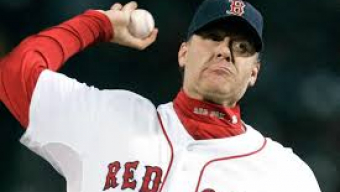Confession here.
When it came time to put the final check marks to my Hall of Fame ballot, a side of me – albeit a teeny, tiny side – was tempted to vote for the proven and reputed steroid users and be done with it. Vote them in now and end the debate over this sorry period in baseball history.
But that would have been the easy thing to do. It would satisfy those who believe baseball greatness is greatness no matter how it is achieved.
But I couldn’t do it. I wouldn’t do it.
I believe just as strongly now as before that players who used steroids did it knowing they were cheating the spirit of the game even as baseball turned a blind eye to their actions. When they took those substances, they knew their legacy was at risk but were willing to take that chance in order to elevate their performance.
So again I did not vote anyone who had tested positive or admitted to steroid use, or anyone whose cloud of suspicion has cast a severe shadow on their careers. I did not vote for Barry Bonds, Roger Clemens, Manny Ramirez or Sammy Sosa.
Will I ever change my mind? I don’t foresee it, especially as long as the Baseball Writers Association of America Rules for Election includes Rule 5: “Voting shall be based upon the player’s record, playing ability, integrity, sportsmanship, character and contributions to the team(s) on which the player played.”
If they remove the “integrity, sportsmanship, character” portion of that rule, then I’ll be more inclined to vote for the PED players.
I voted for 10 players this year: Vladimir Guerrero, Trevor Hoffman, Chipper Jones, Edgar Martinez, Mike Mussina, Scott Rolen, Curt Schilling, Jim Thome, Omar Vizquel and Larry Walker.
Schilling got my vote again after I left his space blank last year. In November, 2016, Schilling retweeted a photo of a t-shirt that advocated the murder of journalists. And he topped it with the comment, “So much awesome here.” Again, if I’m to consider integrity, sportsmanship and character, I won’t support someone who advocates murder (and I don’t care if it’s a journalist or an animal). I withheld my vote for Schilling last year, and I was skewered by folks calling me a liberal snowflake (little do you know) who let politics enter the voting equation.
But I also kept my eyes and ears open the past year, not to Schilling’s political views but to what he did for mankind. And he did good things, especially when he organized deliveries of badly needed supplies to citizens of hurricane-ravaged Puerto Rico.
So rip me for something else, like whether you think Schilling was a Hall-of-Fame-caliber pitcher. Sure, there’s debate on whether his overall record is Hall-worthy, but his postseason record is phenomenal. To me, there’s nothing more valuable than a player who’s at his best in the biggest games, and that was Schilling.
Thanks to voters who make their ballots public, and Twitter, the Hall vote has faced unprecedented criticism from those who believe there must be a better process for inducting players. They see a ballot with – or without – votes for PED users and cry that writer should have his or her voting privilege revoked. They see a “statement” ballot with no boxes checked, or one from an Ohio writer who voted only for Thome and Vizquel, and call for those writers to be expelled from the BBWAA.
There’s got to be a better way, they complain.
If there is, then bring it on. I will gladly give up my voting right if the Hall of Fame deems another method of selecting inductees better than the system in place now, because nothing is bigger than the game.
Until then, I think the current system works. There are about 450 of us who vote, many with different opinions on what makes a player worthy of the Hall. Some favor PED users, some don’t. Some are “small Hall” voters with just a few check marks on their ballots, others vote for the maximum of 10. Some embrace modern statistical analytics while others don’t.
To me, that kind of variety makes the current system work. It would be a travesty if every voter was like-minded.Steroid





















